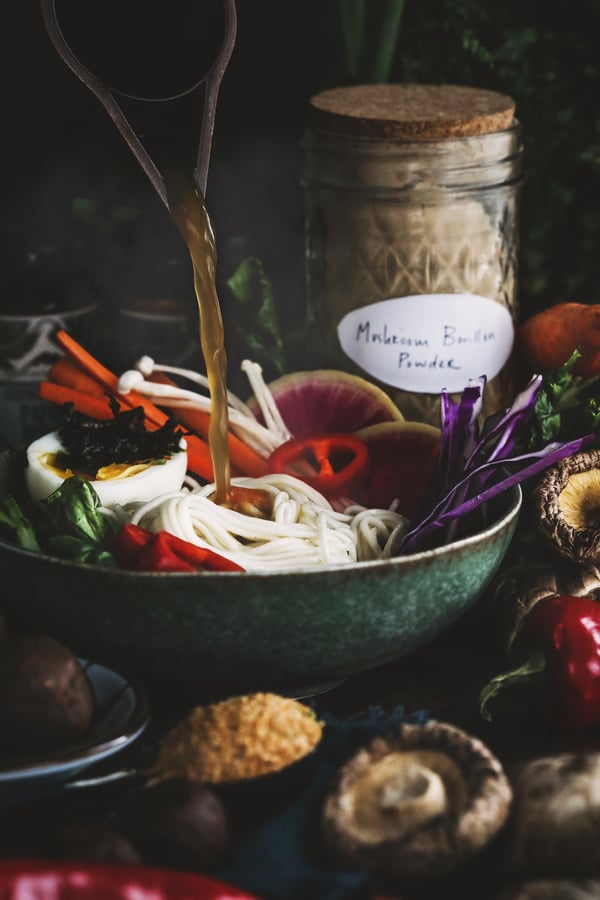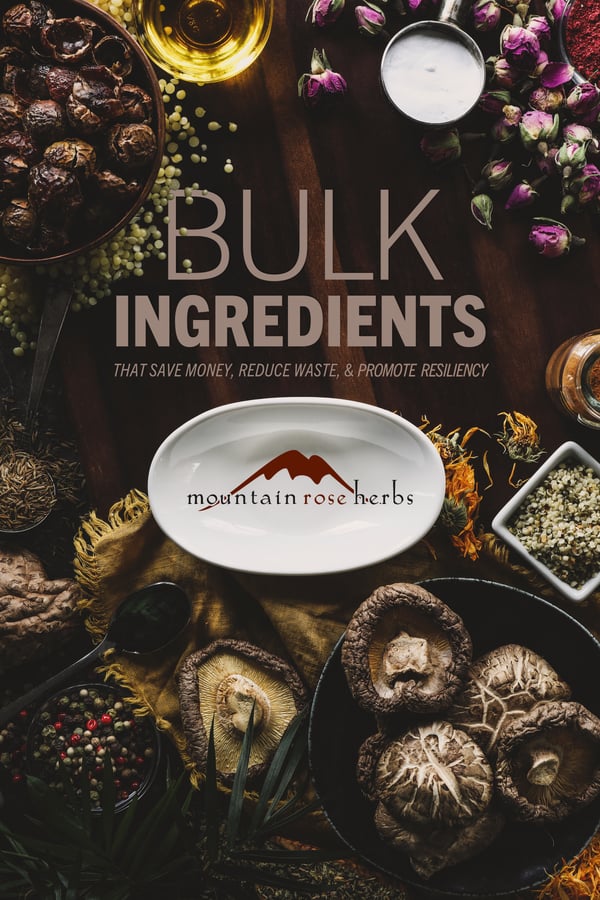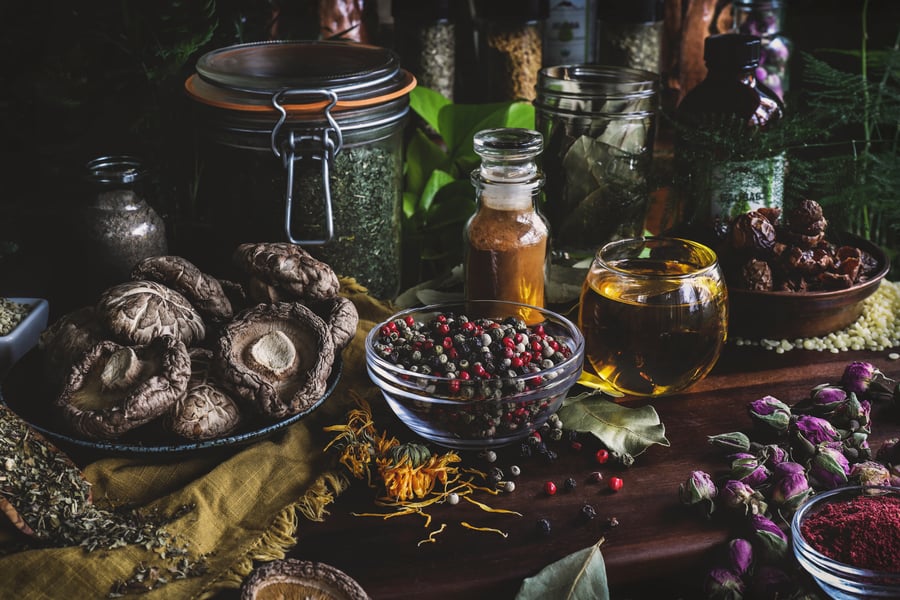
I love the peace of knowing that I have both the skills and stock on hand to thrive in most of the situations life throws my way. I can confidently rely on my resourcefulness and forethought to help me whether I can’t get to the grocery store for a bit, need to pinch some pennies, or just ran out of laundry soap. The efforts that I put into this lifestyle are also in line with my sustainability goals and significantly reduce the waste generated from my household.
I wouldn’t consider myself a “prepper” by any means, but I do think of myself as an experienced bulk buyer and a sustainability-minded person. In addition to improved resiliency, bulk purchasing also saves a ton of money and resources. Let’s use dried organic basil leaf as an example. A store-bought bottle of organic basil leaf is roughly $8.00 per ounce. A four-ounce bag of basil leaf that you can use to refill into your own upcycled bottles is $7.25 at Mountain Rose Herbs. That would be about $32.00 if you bought that much at the grocery store. I don’t know about you, but I go through more than one bottle of basil leaf a year, and with that kind of cost savings, I can even afford to share it with my friends and family if I couldn’t use it all myself.
Homegrown sprouts are another great example of an ingredient that is healthy, easy to stock, and comes with cost and packaging savings by buying in bulk. It takes about one tablespoon of seeds to grow a quart of sprouts. A tablespoon of seeds costs far less than a dollar and you can grow them right on your kitchen counter. Sprouts from the store, on the other hand, go for $3.00 - $4.00 per container for about half that amount, and they come in single-use plastic containers destined for the landfill.
These are just a few examples, but you can see how making simple switches in your lifestyle and buying habits can make a big impact on improving resiliency, reducing pressure on your finances, and helping the planet. Here are some of my other tips on how to stock a pantry. 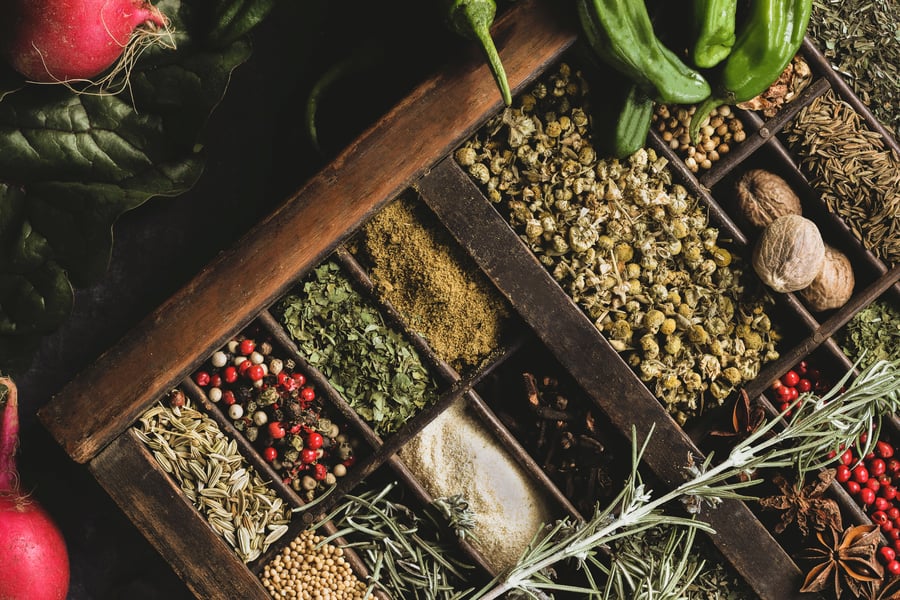
How to Stock Your Pantry for Resiliency & Cost Savings
- Hemp Seeds: Did you know you can make easy plant-based milk with hemp seeds? This zero-waste vegan milk reduces single-use containers, cuts out the preservatives used in store-bought hemp milk, and produces fresh milk that you can easily make at home. Find the recipe here!
- Flax Seeds: Flax seeds are chock-full of natural fats and nutrients that nurture our bodies. They also make a great egg substitute! While you won’t want to eat a flax seed omelet, you can use flax meal as a replacement for eggs in baked goods. They can also be added to energy bites, smoothies, and so much more.
- Sprouting Seeds: There is nothing more empowering than growing your own greens on your kitchen counter! Packed with nutrients and protein, sprouts are a vital food to have in your diet. Sprouting seeds are inexpensive to buy and last quite a long time. Some of my favorites include alfalfa, broccoli, daikon radish, rambo radish, and red clover.
- Dried Mushrooms: A source of shelf-stable protein and health-supporting properties, dehydrated mushrooms are a staple in my panty. Mushrooms like shiitake and maitake are great to add to homemade soups and pasta dishes, and are even delicious as a stand-alone side dish. You can also sprinkle mushroom powders like reishi and cordyceps in smoothies and culinary preparations for added supportive benefits.
- Superfood Powders: We all know that herbs and berries are good for our health. Having ready-to-use organic powders is a great way to add more nutrient-packed ingredients into our everyday lives and gives us more opportunities to take our meals from delicious to functional. This blog on superfood powders is a great reference that talks more in detail about these specialty ingredients, but some go-to staples of mine include:
- Herbs & Spices: Herbs and spices do more than flavor our food—they offer nutrition and wellness-supporting properties for our hard-working bodies. Some of the ones I like to have on hand include:
- Aloe Gel: I love the universal nature of aloe gel and keep it well stocked. I also love to grow my own. In addition to its ability to support the skin, aloe gel is wonderful at supporting digestion. Keep in mind that fresh aloe is not pet friendly so if you have plant-loving pets, you may want to keep them out of reach.
- Baking soda: Used in cooking, DIY cleaning, and natural body care, baking soda is a very handy ingredient to keep well-stocked.
- Carrier Oil of Choice: Another crucial ingredient for internal and topical use is oil. Olive and sunflower oil are great universal choices.
- Beeswax: A staple used in my homemade salves and balms, my apothecary cabinet is always well stocked with beeswax for the unavoidable bumps, scrapes, and bruises.
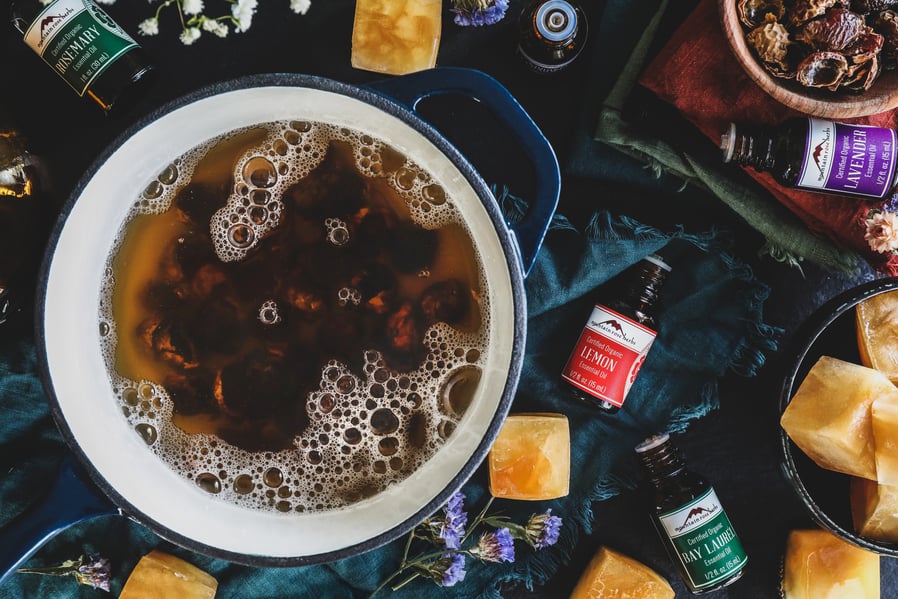
- Soap nuts: This universal solid soap will get you out of a pinch if you’ve run out of shampoo, dish soap, hand soap, or even laundry soap. It is about the most cost-effective natural soap available.
- Castille Soap: While a bit heavier and a little more costly, having bulk liquid soap on hand is great for the convenience factor.
I hope that this list helps you begin to think about your own needs and ways that you can gain peace of mind knowing you will have what you need when you need it while managing a budget.
Looking for storage tips?
Learn How to Organize Your Home Apothecary & Pantry
You may also enjoy:
Herbalist Shopping List for Beginners
10 Creative Ways to Use Up Old Herbs & Spices
How to Upcycle Herbs After Making Infusions, Oils, Tinctures, & More!

